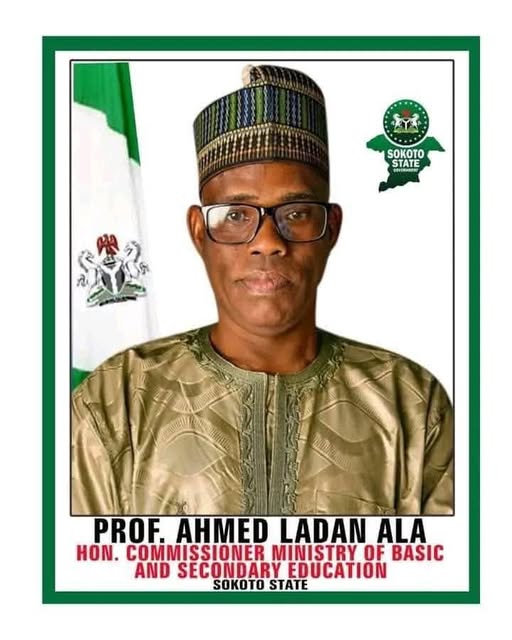The Commissioner for Basic and Secondary Education, Sokoto State, Prof Ahmed Ala says Nigerians should see the concept of Out-of-School Children as a relative term, and not in absolute term.
Prof Ala argued that a child who can read and write in any other language other than English is not an illiterate, but, however, pointed out that in absolute terms,he is illiterate, but in relative terms, he is not.

The commissioner stated that literacy should not be defined solely by the ability to read and write in English, pointing out that someone, who can read and write in his or her own language should be considered literate, even if they cannot do so in English.
He explained that in some countries, someone who is literate in his or her native language may be seen as illiterate in another country, where a different language is dominant.
Prof Ala said the term ‘Out-of-School Child’ refers to a child who is of officially school age (as defined by a country’s education system) but is not enrolled in any formal or non-formal education program.
According to him,’In simple terms, it means: A child who should be in School but is not attending school at all; they may never have enrolled, or may have dropped out before completing their education.’
‘For example, in Nigeria, the official age for primary is 6-11 years and for junior secondary is 12-14 years. So, a 10-year-old who is not in school is considered an out-of-school child’.
He stressed that ‘Out-of-school child is being defined, generally, as per a particular country’s education system. According to UNESCO and UNICEF, some of the main categories of Out-of-School Children(OOSC) are : Children who have never been to school, 2. Children who enrolled but dropped out, Children who are of pre-primary age and not in school.
He pointed out that in Sokoto State based on their reassessment of OOS from relative terms there are about 770 out-of-school children, as against about 100,000 people talk about which should be from absolute terms.
‘Out-of-school children, should be seen as a relative term, not as an absolute term. If you are able to read and write,even not in English,you are not an illiterate.If you know in your own language, you can read, you can write, then you are literate.’
He however pointed out ‘But when you go to some other places, some other countries, then you could be seen as an illiterate, but in relative term, because you can read and write in another language.’
‘An American, for example, if he goes to Russia, there he could be seen as an illiterate person, but in relative terms, not in absolute terms. That’s what I’m saying that we should see this from that perspective.’
The Commissioner stressed ‘ We need to get that very clear. And that’s why when we come to profiling we categorized them into two. Those who cannot read and write both in English and in Arabic. We see them as absolutely out-of-school children. But those who can read and write in Arabic, we classify them as out-of-school children, but in relative terms, because they can read and write in another language. When they go to other places where Arabic is spoken, they can comfortably fit into that society.’
Prof Ala explained further ‘What is illiteracy? We are talking about being able to read and write is not limited to being able to read and read in English only, because we have many nations,where English is not official language. We have Chinese, we have Japanese. Many of them cannot read and write in English, are they illiterate,No.’
He submitted ‘The bone of contention here is that anybody who cannot read and write in English is an illiterate, as an educationist, I can’t say that if the person can read and write in another language,though in absolute term, yes, but in relative term no’.
